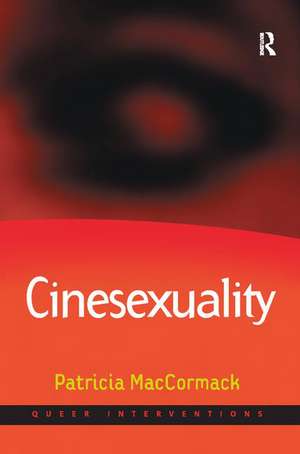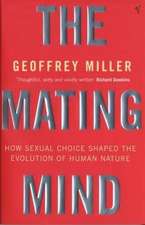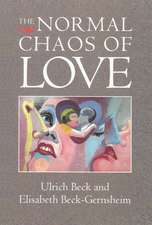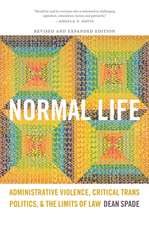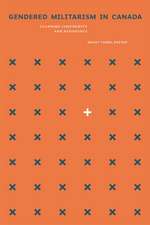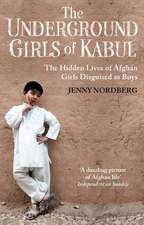Cinesexuality: Queer Interventions
Autor Patricia MacCormacken Limba Engleză Paperback – 30 mar 2017
| Toate formatele și edițiile | Preț | Express |
|---|---|---|
| Paperback (1) | 416.22 lei 6-8 săpt. | |
| Taylor & Francis – 30 mar 2017 | 416.22 lei 6-8 săpt. | |
| Hardback (1) | 1108.73 lei 6-8 săpt. | |
| Taylor & Francis – 23 iul 2008 | 1108.73 lei 6-8 săpt. |
Preț: 416.22 lei
Nou
Puncte Express: 624
Preț estimativ în valută:
79.65€ • 82.85$ • 65.76£
79.65€ • 82.85$ • 65.76£
Carte tipărită la comandă
Livrare economică 14-28 aprilie
Preluare comenzi: 021 569.72.76
Specificații
ISBN-13: 9781138053625
ISBN-10: 1138053627
Pagini: 184
Dimensiuni: 156 x 234 mm
Greutate: 0.45 kg
Ediția:1
Editura: Taylor & Francis
Colecția Routledge
Seria Queer Interventions
Locul publicării:Oxford, United Kingdom
ISBN-10: 1138053627
Pagini: 184
Dimensiuni: 156 x 234 mm
Greutate: 0.45 kg
Ediția:1
Editura: Taylor & Francis
Colecția Routledge
Seria Queer Interventions
Locul publicării:Oxford, United Kingdom
Notă biografică
Patricia MacCormack is Senior Lecturer in Communication and Film at Anglia Ruskin University, Cambridge. Her principal research interests are in continental philosophy, particularly the works of Deleuze, Guattari, Irigaray, Foucault, Bataille, Lyotard and Blanchot and she has published extensively in these areas. She has also written on a diverse range of issues such as body modification, post-human ethics, performance art, monster theory and particularly Italian horror film.
Recenzii
'In film and cultural theory, we have lived too long in the age of signification and identification. In her brilliant and challenging book, Cinesexuality, Patricia MacCormack brings us into the era of intensity and becoming. Offering an Anti-Oedipus for image theory, MacCormack has produced a completely original approach to spectatorship as a corporeal and material distribution of desire beyond dialectics. For many readers, this will be an intensely liberating book.' D.N. Rodowick, Harvard University, USA 'MacCormack is the ultimate third millennium sexual radical: she subverts discussions about the gender of the gaze with bold insights into the ethics and the erotics of contemporary spectatorship. She swaps linguistic regimes of signification for corporeal perspectives, semiotics for affect, identifications for hybrid contagions and exemplary cases for productive anomalies. This is a wickedly clever trans-disciplinary analysis of who we are in the process of becoming.' Rosi Braidotti, Utrecht University, The Netherlands 'Cinesexualtiy, Patricia MacCormack's ambitious and avowedly experimental work on film spectatorship explores the "inherent queerness" of spectatorship. Its eight verbally and intellectually baroque chapters regard cinema less as an everyday medium of representation, and more as the space of extraordinary, multi-faceted "encounters of becoming" between spectator and image/sound, in which meanings of gender, sexuality, propriety and subjectivity are problematized.' Times Higher Education 'Cinesexuality is an interdisciplinary study that draws from the work of a diverse range of theorists including, but by no means limited to, Gilles Deleuze, Félix Guattari, Rosi Braidotti, Elizabeth Grosz, Luce Irigaray, and Jacques Derrida...It is easy to foresee the importance of this book as a defining theoretical text. Scholars of film, feminism, queer theory, post-structuralist theory and philosophy will no doubt tease out the complexities of McCormack’s w
Cuprins
Chapter 1 Spectatorship: An Inter-kingdom Desire; Chapter 2 A Cinema of Desire: Cinesexuality and Asemiosis; Chapter 3 Cinemasochism; Chapter 4 Baroque Cinesexuality; Chapter 5 Baroque Becomings; Chapter 6 Zombies without Organs; Chapter 7 Necrosexuality; Chapter 8 The Ecosophy of Spectatorship;
Descriere
Cinesexuality explores the queerness of cinema spectatorship - represented as a unique encounter of desire, pleasure and perversion beyond binary dialectics of subject/object and image/meaning. Through a variety of cinematic examples, the book encourages a radical shift to spectatorship as itself inherently queer beyond what is watched and who watches.
